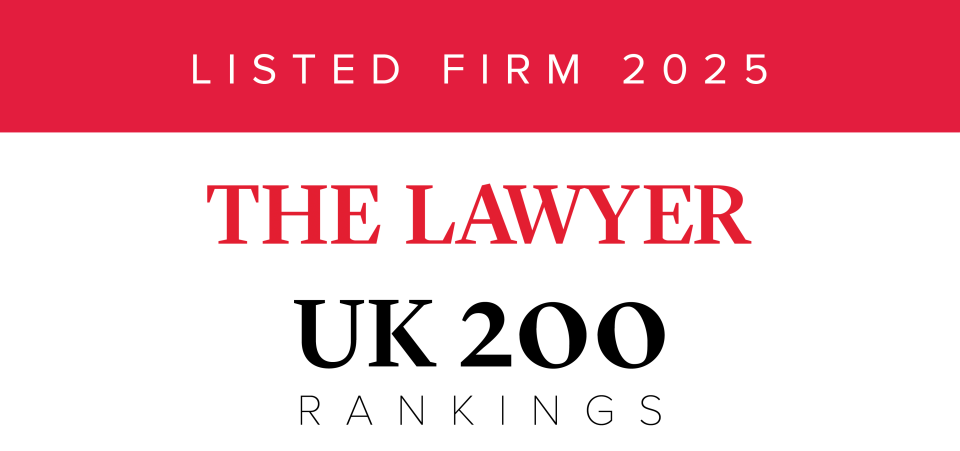
Renters’ Rights Act 2025: what it means for landlords
The Renters’ Rights Act 2025 has received Royal Assent. Here’s what private landlords need to know and how to prepare.
The Renters’ Rights Act 2025 abolishes Section 21 ‘no-fault’ evictions, replaces fixed-term tenancies with rolling (periodic) assured tenancies, introduces a mandatory Private Rented Sector Ombudsman and national landlord database, applies the Decent Homes Standard and Awaab’s Law to private rentals, limits rent increases to once per year, caps rent in advance at one month, strengthens tenant rights on pets, and bans rental bidding and discrimination against families or benefits claimants.
Most measures are expected to take effect from 2026. Landlords must join the new ombudsman, register properties on the national portal, and update tenancy processes and templates ahead of time.
At a glance: what landlords must prepare for
- Section 21 abolished: You can no longer serve Section 21 “no-fault” eviction notices. All possession claims must be through Section 8, using prescribed legal grounds (such as rent arrears, sale, or landlord occupation).
- Fixed terms end: All assured shorthold tenancies (ASTs) will automatically convert to assured periodic tenancies that roll on monthly or weekly.
- Rent increases: Limited to once every 12 months via a Section 13 notice with at least two months’ notice.
- Rent in advance cap: You cannot demand more than one month’s rent in advance.
- Private Rented Sector Ombudsman: Mandatory membership for landlords to this scheme where tenants can access free, binding redress for complaints.
- National landlord portal: You must register yourself and each property, keep details up to date, and display registration numbers on adverts.
- Pets: Tenants gain a right to request a pet which landlords must not unreasonably refuse.
- No rental bidding / discrimination: It’s unlawful to encourage offers above the listed rent or to reject applicants with children or benefits.
- Decent Homes Standard & Awaab’s Law: Applying to the private rented sector, you’ll need to meet higher repair and quality standards with strict repair deadlines.
- Stronger enforcement: Councils gain greater powers and can enforce rent repayment orders for serious or repeat breaches.
When will the changes start?
- The Act became law on 27 October 2025.
- Implementation will happen in phases during 2026, with commencement dates announced by the Government.
- The abolition of Section 21 and conversion to periodic tenancies will form the first wave, followed by the ombudsman, database, and standards rollout.
- Transitional provisions will protect existing possession claims and notices served before commencement.
What this means for you as a landlord
-
Possession and eviction
Possession and eviction
- You’ll rely on Section 8 grounds for possession.
- New and simplified grounds include selling the property, moving in yourself or a close family member, rent arrears, and antisocial behaviour.
- Courts will prioritise serious breaches, but no-fault evictions will disappear once Section 21 is repealed.
- Proper notice, evidence and procedure are vital to avoid delay or dismissal.
-
Tenancy structure
Tenancy structure
- Your ASTs will convert automatically into assured periodic tenancies with no fixed end date.
- Tenants can leave with two months’ notice, so plan for more flexible turnover.
- Update your tenancy templates and notice processes to reflect the new structure.
-
Rent increases
Rent increases
- Only one increase every 12 months, via Section 13, and you must give two months’ notice.
- Avoid informal or “review clause” rises. The Section 13 route will be the lawful mechanism.
- Tenants can challenge unreasonable increases at the First-tier Tribunal, so gather evidence of market comparables.
-
Rent in advance and deposits
Rent in advance and deposits
- Advance rent is capped at one month, even for students or overseas tenants.
- You can still take a tenancy deposit within the existing legal limit (5 weeks for most rents).
-
Pets and tenant requests
Pets and tenant requests
- Landlords must consider pet requests fairly and cannot issue blanket bans.
- Update your policies and referencing checks to accommodate this change.
-
Advertising and tenant selection
Advertising and tenant selection
- It’s now illegal to refuse tenants with children or benefits (“No DSS” policies).
- You must advertise a set rent and not accept bids above it. Rental bidding wars are prohibited.
- Review your agents’ marketing to ensure compliance.
-
Standards, safety and repairs
Standards, safety and repairs
- The Decent Homes Standard and Awaab’s Law repair timeframes extend to private landlords.
- You must address serious hazards (like damp and mould) within specified time limits.
- Expect more local authority inspections and fines for sub-standard homes.
-
The landlord database and ombudsman
The landlord database and ombudsman
- You must register each rental property on the national landlord portal and keep data current.
- Ombudsman membership is mandatory for landlords. Tenants can complain directly to the ombudsman and receive binding decisions.
- Failure to join or register can lead to civil penalties and restrictions on letting.
Possession and eviction
- You’ll rely on Section 8 grounds for possession.
- New and simplified grounds include selling the property, moving in yourself or a close family member, rent arrears, and antisocial behaviour.
- Courts will prioritise serious breaches, but no-fault evictions will disappear once Section 21 is repealed.
- Proper notice, evidence and procedure are vital to avoid delay or dismissal.
Tenancy structure
- Your ASTs will convert automatically into assured periodic tenancies with no fixed end date.
- Tenants can leave with two months’ notice, so plan for more flexible turnover.
- Update your tenancy templates and notice processes to reflect the new structure.
Rent increases
- Only one increase every 12 months, via Section 13, and you must give two months’ notice.
- Avoid informal or “review clause” rises. The Section 13 route will be the lawful mechanism.
- Tenants can challenge unreasonable increases at the First-tier Tribunal, so gather evidence of market comparables.
Rent in advance and deposits
- Advance rent is capped at one month, even for students or overseas tenants.
- You can still take a tenancy deposit within the existing legal limit (5 weeks for most rents).
Pets and tenant requests
- Landlords must consider pet requests fairly and cannot issue blanket bans.
- Update your policies and referencing checks to accommodate this change.
Advertising and tenant selection
- It’s now illegal to refuse tenants with children or benefits (“No DSS” policies).
- You must advertise a set rent and not accept bids above it. Rental bidding wars are prohibited.
- Review your agents’ marketing to ensure compliance.
Standards, safety and repairs
- The Decent Homes Standard and Awaab’s Law repair timeframes extend to private landlords.
- You must address serious hazards (like damp and mould) within specified time limits.
- Expect more local authority inspections and fines for sub-standard homes.
The landlord database and ombudsman
- You must register each rental property on the national landlord portal and keep data current.
- Ombudsman membership is mandatory for landlords. Tenants can complain directly to the ombudsman and receive binding decisions.
- Failure to join or register can lead to civil penalties and restrictions on letting.
Lawyers Specialising in Renters' Rights
-

Tessie Belton
-

Tom Donnelly
Renters’ Rights Act for Landlords: FAQs
-
Do landlords still need tenancy agreements?
Yes. You should use an updated assured periodic tenancy agreement that reflects the new legal framework.
-
Can I still evict tenants easily?
You can only evict tenants with a valid Section 8 ground, which are not “no-fault”. You’ll need clear evidence and correct notices.
-
Will existing ASTs automatically change?
Yes. When the Act takes effect, most ASTs convert to periodic tenancies automatically.
-
How do rent increases work now?
You may increase rent once per 12 months using a Section 13 notice and two months’ notice.
-
Can I charge six months’ rent up front?
No. One month’s rent in advance is the maximum allowed.
-
Do I have to join the ombudsman?
Yes. All landlords must register when the scheme opens.
-
What happens if I don’t register on the database?
You could face civil penalties and may not be allowed to let legally.
-
Do the new standards apply to me?
Yes. The Decent Homes Standard and Awaab’s Law will apply to private rented homes.
-
What is The Decent Homes Standard and Awaab’s Law?
The Decent Homes Standard is a set of criteria for housing quality. It requires homes to be warm, weatherproof and free from serious disrepair. Awaab’s Law mandates strict timelines for landlords to investigate and fix serious health hazards in homes, such as damp and mould.
-
When do these changes start?
There will be a staged rollout throughout 2026. Key tenancy reforms will begin first.
-
Does this apply across the UK?
No. These changes apply to England only.
Practical next steps for landlords
Audit your tenancy agreements. Plan to replace ASTs with compliant assured periodic forms.
Review rent-increase schedules and templates to use Section 13 correctly.
Train staff and agents on discrimination and rental bidding bans.
Prepare evidence and notice templates for Section 8 possession.
Join the PRS Ombudsman as soon as registration opens.
Register on the national portal and keep details updated.
Inspect and upgrade properties to meet the Decent Homes Standard.
Update your pet policy and risk management processes.
Review insurance cover for compliance and property damage.
Seek legal advice early. Transition and compliance planning can save costly disputes later.
How Setfords can help landlords
Renters’ Rights Act glossary
Section 21
The old “no-fault” eviction process which is now abolished under the Renters’ Rights Act 2025.
Section 8
A route to possession requiring a legal ground such as sale or rent arrears.
Section 13
A notice used for rent increases.
Assured periodic tenancy
The new standard format for tenancies that rolls month to month.
PRS Ombudsman
The new mandatory redress scheme for landlords and tenants.
Landlord portal
National database where landlords must register.
Decent Homes Standard
Minimum quality rules which are now extended to private rentals.
Awaab’s Law
Statutory repair deadlines for serious hazards.


